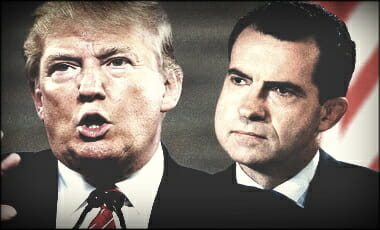Here is the WASHINGTON POST article by Bill Clinton’s former Attorney General:
….It is true, as I pointed out in a Post op-ed in October, that Attorney General Loretta E. Lynch, after her tarmac meeting with Bill Clinton, had left a vacuum by neither formally recusing herself nor exercising supervision over the case. But the remedy for that was for Comey to present his factual findings to the deputy attorney general, not to exercise the prosecutorial power himself on a matter of such grave importance.
Until Comey’s testimony last week, I had assumed that Lynch had authorized Comey to act unilaterally. It is now clear that the department’s leadership was sandbagged. I know of no former senior Justice Department official — Democrat or Republican — who does not view Comey’s conduct in July to have been a grave usurpation of authority.
Comey’s basic misjudgment boxed him in, compelling him to take increasingly controversial actions giving the impression that the FBI was enmeshed in politics. Once Comey staked out a position in July, he had no choice on the near-eve of the election but to reopen the investigation when new evidence materialized. Regrettably, however, this performance made Comey himself the issue, placing him on center stage in public political discourse and causing him to lose credibility on both sides of the aisle. It was widely recognized that Comey’s job was in jeopardy regardless of who won the election.
It is not surprising that Trump would be inclined to make a fresh start at the bureau and would consult with the leadership of the Justice Department about whether Comey should remain. Those deliberations could not begin in earnest until the new deputy attorney general, Rod J. Rosenstein, to whom Comey would report, was confirmed and in a position to assess Comey and his performance. No matter how far along the president was in his own thinking, Rosenstein’s assessment is cogent and vindicates the president’s decision.
Rosenstein made clear in his memorandum that he was concerned not so much with Comey’s past arrogation of power, as astonishing as it was, but rather with his ongoing refusal to acknowledge his errors. I do not dispute that Comey sincerely believes he acted properly in the best interests of the country. But at the same time, I think it is quite understandable that the administration would not want an FBI director who did not recognize established limits on his powers.
It is telling that none of the president’s critics are challenging the decision on the merits. None argue that Comey’s performance warranted keeping him on as director. Instead, they are attacking the president’s motives, claiming the president acted to neuter the investigation into Russia’s role in the election.
The notion that the integrity of this investigation depends on Comey’s presence just does not hold water. Contrary to the critics’ talking points, Comey was not “in charge” of the investigation….

